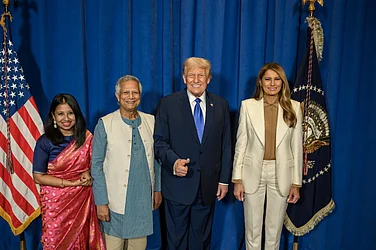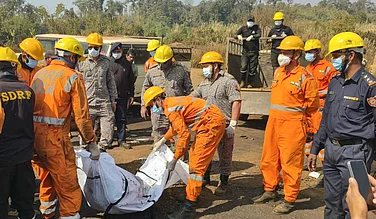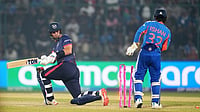Sri Lanka’s newly-appointed Prime Minister Dinesh Gunawardena on Wednesday said the government is ready to listen to the demands of democratic public protesters, but denounced acts of terrorism, calling it the “greatest threat to democracy.”
Gunawardena, 73, an ally of the Rajapaksas and a school friend of the newly-elected President Ranil Wickremesinghe, was sworn in as the Sri Lankan Prime Minister last week amid an unprecedented economic and political crisis.
Addressing Parliament on Wednesday, Gunawardena said the Sri Lankan government is ready to listen to the democratic public protests, but they could not accept acts of terrorism.
“Terrorism was the greatest threat to democracy, and the Parliament which upholds democracy would not support such acts of terrorism,” the Daily Mirror newspaper quoted him as telling the lawmakers. “There could be different political ideologies but the Parliament should work in unison to address the issues faced by the people,” he added.
Sri Lanka's security forces forcibly evicted anti-government protesters camped outside the presidential office in Colombo in a pre-dawn raid on Friday on the order of President Wickremesinghe that left more than 50 people injured.
The assault on the protesters evoked widespread criticism, including from foreign envoys stationed in Colombo. At least nine persons were arrested in the incident at Galle Face protest site where several key government offices are located.
On July 9, anti-government protesters occupied the residences of former President Rajapaksa and Wickremesinghe after storming into their premises and setting fire to one of the buildings protesting the government’s handling of the unprecedented economic crisis.
Wickremesinghe said he respects the rights of the protesters to peacefully undertake their demonstrations, but he asserted that he will not allow another government building like the Presidential Palace or the Prime Minister’s private residence to be occupied.
Protesters were camping outside the presidential office for months, demanding the resignation of former President Gotabaya Rajapaksa, who fled the country on July 13, and Wickremesinghe, a key Rajapaksa ally.


























